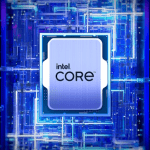SoftBank-owned chip design firm ‘Arm’ has announced the third generation of Armv9.2-based Total Compute Solutions (TCS23) with better performance and efficiency over the previous generation.
The performance-oriented Cortex-X4, intermediate Cortex-A720, and efficiency-focused Cortex-A520 cores are among the new developments.
These CPUs, like the previous generation, only support 64-bit workloads and can be employed in a cluster of up to 14 cores due to the new DynamIQ Shared Unit or DSU-120 design.
Arm claims a 27% performance gain in a 1+5+2 (X+A720+A520) core arrangement for smartphones over the formerly dominant 1+4+3 structure on flagship chips.
Arm also advances its GPU lineup with the improved Immortalis-G720 flagship GPU along with the sub-flagship Mali-G720 and Mali-G620 GPU designs.
The Cortex-X4 is Arm’s new flagship core that is claimed to bring a 15% performance boost over the Cortex-X3, which powers current flagship Android smartphone chipsets, such as the Qualcomm Snapdragon 8 Gen 2 (using Kryo cores based on Arm’s design), MediaTek Dimensity 9200/9200+, Google Tensor G2, Samsung Exynos 2300, etc.
The Cortex-X4 is also said to occupy 10% less space while improving the power efficiency by 40% over the X3 when deployed over comparable hardware specifications (clock speed, manufacturing process, cache, et al.).
The Cortex-X4 can be expected on flagship mobile chipsets, such as the purported Qualcomm Snapdragon 8 Gen 3 and MediaTek Dimensity 9300. There is a possibility we might even witness the new flagship core design on Qualcomm’s next chipset for portable laptops — the Snapdragon 8cx Gen 4 — or its in-house chipsets, but there is no evidence supporting this yet.
For mobile chipsets like the Snapdragon 8 Gen 2, Cortex-X series performance cores are accompanied by cores with relatively lower power consumption in a big. LITTLE cluster. Likewise, the Cortex-X4 is expected to be paired with the new Arm Cortex-A720 and Cortex-A520 cores on flagship chips.
The Cortex-A720 marks a 20% improvement in power efficiency over the previous A715 cores. In comparison, the Cortex-A520 is claimed to bump efficiency up by 22% compared to its predecessor. The Cortex-A520 is the first update to the efficiency lineup in two years and is reported to improve performance by 8% over the Cortex-A510.
Meanwhile, no such claim about improved performance was made for the Cortex-A720.
Notably, while the Cortex-X3 is destined to be limited to high-end mobile chipsets, the Cortex-A720 and Cortex-A520 may be seen on some upper mid-range chips, such as the Snapdragon 7 Gen x series.
Arm has also introduced newer designs for GPUs to accompany the advanced CPUs and calls them the “most efficient GPUs ever.” Of these, the Immortalis-G720 is aimed at flagship chipsets, while the Mali-G720 and Mali-G620 GPUs are geared towards mid-range smartphones and other devices such as streaming boxes, AR/VR headsets, and more.
Arm shares collective figures for the three GPUs, claiming a 15% increased efficiency and a 15% performance improvement over previous generations.
SoftBank-owned chip design firm ‘Arm’ has announced the third generation of Armv9.2-based Total Compute Solutions (TCS23) with better performance and efficiency over the previous generation.
The performance-oriented Cortex-X4, intermediate Cortex-A720, and efficiency-focused Cortex-A520 cores are among the new developments.
These CPUs, like the previous generation, only support 64-bit workloads and can be employed in a cluster of up to 14 cores due to the new DynamIQ Shared Unit or DSU-120 design.
Arm claims a 27% performance gain in a 1+5+2 (X+A720+A520) core arrangement for smartphones over the formerly dominant 1+4+3 structure on flagship chips.
Arm also advances its GPU lineup with the improved Immortalis-G720 flagship GPU along with the sub-flagship Mali-G720 and Mali-G620 GPU designs.
The Cortex-X4 is Arm’s new flagship core that is claimed to bring a 15% performance boost over the Cortex-X3, which powers current flagship Android smartphone chipsets, such as the Qualcomm Snapdragon 8 Gen 2 (using Kryo cores based on Arm’s design), MediaTek Dimensity 9200/9200+, Google Tensor G2, Samsung Exynos 2300, etc.
The Cortex-X4 is also said to occupy 10% less space while improving the power efficiency by 40% over the X3 when deployed over comparable hardware specifications (clock speed, manufacturing process, cache, et al.).
The Cortex-X4 can be expected on flagship mobile chipsets, such as the purported Qualcomm Snapdragon 8 Gen 3 and MediaTek Dimensity 9300. There is a possibility we might even witness the new flagship core design on Qualcomm’s next chipset for portable laptops — the Snapdragon 8cx Gen 4 — or its in-house chipsets, but there is no evidence supporting this yet.
For mobile chipsets like the Snapdragon 8 Gen 2, Cortex-X series performance cores are accompanied by cores with relatively lower power consumption in a big. LITTLE cluster. Likewise, the Cortex-X4 is expected to be paired with the new Arm Cortex-A720 and Cortex-A520 cores on flagship chips.
The Cortex-A720 marks a 20% improvement in power efficiency over the previous A715 cores. In comparison, the Cortex-A520 is claimed to bump efficiency up by 22% compared to its predecessor. The Cortex-A520 is the first update to the efficiency lineup in two years and is reported to improve performance by 8% over the Cortex-A510.
Meanwhile, no such claim about improved performance was made for the Cortex-A720.
Notably, while the Cortex-X3 is destined to be limited to high-end mobile chipsets, the Cortex-A720 and Cortex-A520 may be seen on some upper mid-range chips, such as the Snapdragon 7 Gen x series.
Arm has also introduced newer designs for GPUs to accompany the advanced CPUs and calls them the “most efficient GPUs ever.” Of these, the Immortalis-G720 is aimed at flagship chipsets, while the Mali-G720 and Mali-G620 GPUs are geared towards mid-range smartphones and other devices such as streaming boxes, AR/VR headsets, and more.
Arm shares collective figures for the three GPUs, claiming a 15% increased efficiency and a 15% performance improvement over previous generations.
SoftBank-owned chip design firm ‘Arm’ has announced the third generation of Armv9.2-based Total Compute Solutions (TCS23) with better performance and efficiency over the previous generation.
The performance-oriented Cortex-X4, intermediate Cortex-A720, and efficiency-focused Cortex-A520 cores are among the new developments.
These CPUs, like the previous generation, only support 64-bit workloads and can be employed in a cluster of up to 14 cores due to the new DynamIQ Shared Unit or DSU-120 design.
Arm claims a 27% performance gain in a 1+5+2 (X+A720+A520) core arrangement for smartphones over the formerly dominant 1+4+3 structure on flagship chips.
Arm also advances its GPU lineup with the improved Immortalis-G720 flagship GPU along with the sub-flagship Mali-G720 and Mali-G620 GPU designs.
The Cortex-X4 is Arm’s new flagship core that is claimed to bring a 15% performance boost over the Cortex-X3, which powers current flagship Android smartphone chipsets, such as the Qualcomm Snapdragon 8 Gen 2 (using Kryo cores based on Arm’s design), MediaTek Dimensity 9200/9200+, Google Tensor G2, Samsung Exynos 2300, etc.
The Cortex-X4 is also said to occupy 10% less space while improving the power efficiency by 40% over the X3 when deployed over comparable hardware specifications (clock speed, manufacturing process, cache, et al.).
The Cortex-X4 can be expected on flagship mobile chipsets, such as the purported Qualcomm Snapdragon 8 Gen 3 and MediaTek Dimensity 9300. There is a possibility we might even witness the new flagship core design on Qualcomm’s next chipset for portable laptops — the Snapdragon 8cx Gen 4 — or its in-house chipsets, but there is no evidence supporting this yet.
For mobile chipsets like the Snapdragon 8 Gen 2, Cortex-X series performance cores are accompanied by cores with relatively lower power consumption in a big. LITTLE cluster. Likewise, the Cortex-X4 is expected to be paired with the new Arm Cortex-A720 and Cortex-A520 cores on flagship chips.
The Cortex-A720 marks a 20% improvement in power efficiency over the previous A715 cores. In comparison, the Cortex-A520 is claimed to bump efficiency up by 22% compared to its predecessor. The Cortex-A520 is the first update to the efficiency lineup in two years and is reported to improve performance by 8% over the Cortex-A510.
Meanwhile, no such claim about improved performance was made for the Cortex-A720.
Notably, while the Cortex-X3 is destined to be limited to high-end mobile chipsets, the Cortex-A720 and Cortex-A520 may be seen on some upper mid-range chips, such as the Snapdragon 7 Gen x series.
Arm has also introduced newer designs for GPUs to accompany the advanced CPUs and calls them the “most efficient GPUs ever.” Of these, the Immortalis-G720 is aimed at flagship chipsets, while the Mali-G720 and Mali-G620 GPUs are geared towards mid-range smartphones and other devices such as streaming boxes, AR/VR headsets, and more.
Arm shares collective figures for the three GPUs, claiming a 15% increased efficiency and a 15% performance improvement over previous generations.
SoftBank-owned chip design firm ‘Arm’ has announced the third generation of Armv9.2-based Total Compute Solutions (TCS23) with better performance and efficiency over the previous generation.
The performance-oriented Cortex-X4, intermediate Cortex-A720, and efficiency-focused Cortex-A520 cores are among the new developments.
These CPUs, like the previous generation, only support 64-bit workloads and can be employed in a cluster of up to 14 cores due to the new DynamIQ Shared Unit or DSU-120 design.
Arm claims a 27% performance gain in a 1+5+2 (X+A720+A520) core arrangement for smartphones over the formerly dominant 1+4+3 structure on flagship chips.
Arm also advances its GPU lineup with the improved Immortalis-G720 flagship GPU along with the sub-flagship Mali-G720 and Mali-G620 GPU designs.
The Cortex-X4 is Arm’s new flagship core that is claimed to bring a 15% performance boost over the Cortex-X3, which powers current flagship Android smartphone chipsets, such as the Qualcomm Snapdragon 8 Gen 2 (using Kryo cores based on Arm’s design), MediaTek Dimensity 9200/9200+, Google Tensor G2, Samsung Exynos 2300, etc.
The Cortex-X4 is also said to occupy 10% less space while improving the power efficiency by 40% over the X3 when deployed over comparable hardware specifications (clock speed, manufacturing process, cache, et al.).
The Cortex-X4 can be expected on flagship mobile chipsets, such as the purported Qualcomm Snapdragon 8 Gen 3 and MediaTek Dimensity 9300. There is a possibility we might even witness the new flagship core design on Qualcomm’s next chipset for portable laptops — the Snapdragon 8cx Gen 4 — or its in-house chipsets, but there is no evidence supporting this yet.
For mobile chipsets like the Snapdragon 8 Gen 2, Cortex-X series performance cores are accompanied by cores with relatively lower power consumption in a big. LITTLE cluster. Likewise, the Cortex-X4 is expected to be paired with the new Arm Cortex-A720 and Cortex-A520 cores on flagship chips.
The Cortex-A720 marks a 20% improvement in power efficiency over the previous A715 cores. In comparison, the Cortex-A520 is claimed to bump efficiency up by 22% compared to its predecessor. The Cortex-A520 is the first update to the efficiency lineup in two years and is reported to improve performance by 8% over the Cortex-A510.
Meanwhile, no such claim about improved performance was made for the Cortex-A720.
Notably, while the Cortex-X3 is destined to be limited to high-end mobile chipsets, the Cortex-A720 and Cortex-A520 may be seen on some upper mid-range chips, such as the Snapdragon 7 Gen x series.
Arm has also introduced newer designs for GPUs to accompany the advanced CPUs and calls them the “most efficient GPUs ever.” Of these, the Immortalis-G720 is aimed at flagship chipsets, while the Mali-G720 and Mali-G620 GPUs are geared towards mid-range smartphones and other devices such as streaming boxes, AR/VR headsets, and more.
Arm shares collective figures for the three GPUs, claiming a 15% increased efficiency and a 15% performance improvement over previous generations.
SoftBank-owned chip design firm ‘Arm’ has announced the third generation of Armv9.2-based Total Compute Solutions (TCS23) with better performance and efficiency over the previous generation.
The performance-oriented Cortex-X4, intermediate Cortex-A720, and efficiency-focused Cortex-A520 cores are among the new developments.
These CPUs, like the previous generation, only support 64-bit workloads and can be employed in a cluster of up to 14 cores due to the new DynamIQ Shared Unit or DSU-120 design.
Arm claims a 27% performance gain in a 1+5+2 (X+A720+A520) core arrangement for smartphones over the formerly dominant 1+4+3 structure on flagship chips.
Arm also advances its GPU lineup with the improved Immortalis-G720 flagship GPU along with the sub-flagship Mali-G720 and Mali-G620 GPU designs.
The Cortex-X4 is Arm’s new flagship core that is claimed to bring a 15% performance boost over the Cortex-X3, which powers current flagship Android smartphone chipsets, such as the Qualcomm Snapdragon 8 Gen 2 (using Kryo cores based on Arm’s design), MediaTek Dimensity 9200/9200+, Google Tensor G2, Samsung Exynos 2300, etc.
The Cortex-X4 is also said to occupy 10% less space while improving the power efficiency by 40% over the X3 when deployed over comparable hardware specifications (clock speed, manufacturing process, cache, et al.).
The Cortex-X4 can be expected on flagship mobile chipsets, such as the purported Qualcomm Snapdragon 8 Gen 3 and MediaTek Dimensity 9300. There is a possibility we might even witness the new flagship core design on Qualcomm’s next chipset for portable laptops — the Snapdragon 8cx Gen 4 — or its in-house chipsets, but there is no evidence supporting this yet.
For mobile chipsets like the Snapdragon 8 Gen 2, Cortex-X series performance cores are accompanied by cores with relatively lower power consumption in a big. LITTLE cluster. Likewise, the Cortex-X4 is expected to be paired with the new Arm Cortex-A720 and Cortex-A520 cores on flagship chips.
The Cortex-A720 marks a 20% improvement in power efficiency over the previous A715 cores. In comparison, the Cortex-A520 is claimed to bump efficiency up by 22% compared to its predecessor. The Cortex-A520 is the first update to the efficiency lineup in two years and is reported to improve performance by 8% over the Cortex-A510.
Meanwhile, no such claim about improved performance was made for the Cortex-A720.
Notably, while the Cortex-X3 is destined to be limited to high-end mobile chipsets, the Cortex-A720 and Cortex-A520 may be seen on some upper mid-range chips, such as the Snapdragon 7 Gen x series.
Arm has also introduced newer designs for GPUs to accompany the advanced CPUs and calls them the “most efficient GPUs ever.” Of these, the Immortalis-G720 is aimed at flagship chipsets, while the Mali-G720 and Mali-G620 GPUs are geared towards mid-range smartphones and other devices such as streaming boxes, AR/VR headsets, and more.
Arm shares collective figures for the three GPUs, claiming a 15% increased efficiency and a 15% performance improvement over previous generations.
SoftBank-owned chip design firm ‘Arm’ has announced the third generation of Armv9.2-based Total Compute Solutions (TCS23) with better performance and efficiency over the previous generation.
The performance-oriented Cortex-X4, intermediate Cortex-A720, and efficiency-focused Cortex-A520 cores are among the new developments.
These CPUs, like the previous generation, only support 64-bit workloads and can be employed in a cluster of up to 14 cores due to the new DynamIQ Shared Unit or DSU-120 design.
Arm claims a 27% performance gain in a 1+5+2 (X+A720+A520) core arrangement for smartphones over the formerly dominant 1+4+3 structure on flagship chips.
Arm also advances its GPU lineup with the improved Immortalis-G720 flagship GPU along with the sub-flagship Mali-G720 and Mali-G620 GPU designs.
The Cortex-X4 is Arm’s new flagship core that is claimed to bring a 15% performance boost over the Cortex-X3, which powers current flagship Android smartphone chipsets, such as the Qualcomm Snapdragon 8 Gen 2 (using Kryo cores based on Arm’s design), MediaTek Dimensity 9200/9200+, Google Tensor G2, Samsung Exynos 2300, etc.
The Cortex-X4 is also said to occupy 10% less space while improving the power efficiency by 40% over the X3 when deployed over comparable hardware specifications (clock speed, manufacturing process, cache, et al.).
The Cortex-X4 can be expected on flagship mobile chipsets, such as the purported Qualcomm Snapdragon 8 Gen 3 and MediaTek Dimensity 9300. There is a possibility we might even witness the new flagship core design on Qualcomm’s next chipset for portable laptops — the Snapdragon 8cx Gen 4 — or its in-house chipsets, but there is no evidence supporting this yet.
For mobile chipsets like the Snapdragon 8 Gen 2, Cortex-X series performance cores are accompanied by cores with relatively lower power consumption in a big. LITTLE cluster. Likewise, the Cortex-X4 is expected to be paired with the new Arm Cortex-A720 and Cortex-A520 cores on flagship chips.
The Cortex-A720 marks a 20% improvement in power efficiency over the previous A715 cores. In comparison, the Cortex-A520 is claimed to bump efficiency up by 22% compared to its predecessor. The Cortex-A520 is the first update to the efficiency lineup in two years and is reported to improve performance by 8% over the Cortex-A510.
Meanwhile, no such claim about improved performance was made for the Cortex-A720.
Notably, while the Cortex-X3 is destined to be limited to high-end mobile chipsets, the Cortex-A720 and Cortex-A520 may be seen on some upper mid-range chips, such as the Snapdragon 7 Gen x series.
Arm has also introduced newer designs for GPUs to accompany the advanced CPUs and calls them the “most efficient GPUs ever.” Of these, the Immortalis-G720 is aimed at flagship chipsets, while the Mali-G720 and Mali-G620 GPUs are geared towards mid-range smartphones and other devices such as streaming boxes, AR/VR headsets, and more.
Arm shares collective figures for the three GPUs, claiming a 15% increased efficiency and a 15% performance improvement over previous generations.
SoftBank-owned chip design firm ‘Arm’ has announced the third generation of Armv9.2-based Total Compute Solutions (TCS23) with better performance and efficiency over the previous generation.
The performance-oriented Cortex-X4, intermediate Cortex-A720, and efficiency-focused Cortex-A520 cores are among the new developments.
These CPUs, like the previous generation, only support 64-bit workloads and can be employed in a cluster of up to 14 cores due to the new DynamIQ Shared Unit or DSU-120 design.
Arm claims a 27% performance gain in a 1+5+2 (X+A720+A520) core arrangement for smartphones over the formerly dominant 1+4+3 structure on flagship chips.
Arm also advances its GPU lineup with the improved Immortalis-G720 flagship GPU along with the sub-flagship Mali-G720 and Mali-G620 GPU designs.
The Cortex-X4 is Arm’s new flagship core that is claimed to bring a 15% performance boost over the Cortex-X3, which powers current flagship Android smartphone chipsets, such as the Qualcomm Snapdragon 8 Gen 2 (using Kryo cores based on Arm’s design), MediaTek Dimensity 9200/9200+, Google Tensor G2, Samsung Exynos 2300, etc.
The Cortex-X4 is also said to occupy 10% less space while improving the power efficiency by 40% over the X3 when deployed over comparable hardware specifications (clock speed, manufacturing process, cache, et al.).
The Cortex-X4 can be expected on flagship mobile chipsets, such as the purported Qualcomm Snapdragon 8 Gen 3 and MediaTek Dimensity 9300. There is a possibility we might even witness the new flagship core design on Qualcomm’s next chipset for portable laptops — the Snapdragon 8cx Gen 4 — or its in-house chipsets, but there is no evidence supporting this yet.
For mobile chipsets like the Snapdragon 8 Gen 2, Cortex-X series performance cores are accompanied by cores with relatively lower power consumption in a big. LITTLE cluster. Likewise, the Cortex-X4 is expected to be paired with the new Arm Cortex-A720 and Cortex-A520 cores on flagship chips.
The Cortex-A720 marks a 20% improvement in power efficiency over the previous A715 cores. In comparison, the Cortex-A520 is claimed to bump efficiency up by 22% compared to its predecessor. The Cortex-A520 is the first update to the efficiency lineup in two years and is reported to improve performance by 8% over the Cortex-A510.
Meanwhile, no such claim about improved performance was made for the Cortex-A720.
Notably, while the Cortex-X3 is destined to be limited to high-end mobile chipsets, the Cortex-A720 and Cortex-A520 may be seen on some upper mid-range chips, such as the Snapdragon 7 Gen x series.
Arm has also introduced newer designs for GPUs to accompany the advanced CPUs and calls them the “most efficient GPUs ever.” Of these, the Immortalis-G720 is aimed at flagship chipsets, while the Mali-G720 and Mali-G620 GPUs are geared towards mid-range smartphones and other devices such as streaming boxes, AR/VR headsets, and more.
Arm shares collective figures for the three GPUs, claiming a 15% increased efficiency and a 15% performance improvement over previous generations.
SoftBank-owned chip design firm ‘Arm’ has announced the third generation of Armv9.2-based Total Compute Solutions (TCS23) with better performance and efficiency over the previous generation.
The performance-oriented Cortex-X4, intermediate Cortex-A720, and efficiency-focused Cortex-A520 cores are among the new developments.
These CPUs, like the previous generation, only support 64-bit workloads and can be employed in a cluster of up to 14 cores due to the new DynamIQ Shared Unit or DSU-120 design.
Arm claims a 27% performance gain in a 1+5+2 (X+A720+A520) core arrangement for smartphones over the formerly dominant 1+4+3 structure on flagship chips.
Arm also advances its GPU lineup with the improved Immortalis-G720 flagship GPU along with the sub-flagship Mali-G720 and Mali-G620 GPU designs.
The Cortex-X4 is Arm’s new flagship core that is claimed to bring a 15% performance boost over the Cortex-X3, which powers current flagship Android smartphone chipsets, such as the Qualcomm Snapdragon 8 Gen 2 (using Kryo cores based on Arm’s design), MediaTek Dimensity 9200/9200+, Google Tensor G2, Samsung Exynos 2300, etc.
The Cortex-X4 is also said to occupy 10% less space while improving the power efficiency by 40% over the X3 when deployed over comparable hardware specifications (clock speed, manufacturing process, cache, et al.).
The Cortex-X4 can be expected on flagship mobile chipsets, such as the purported Qualcomm Snapdragon 8 Gen 3 and MediaTek Dimensity 9300. There is a possibility we might even witness the new flagship core design on Qualcomm’s next chipset for portable laptops — the Snapdragon 8cx Gen 4 — or its in-house chipsets, but there is no evidence supporting this yet.
For mobile chipsets like the Snapdragon 8 Gen 2, Cortex-X series performance cores are accompanied by cores with relatively lower power consumption in a big. LITTLE cluster. Likewise, the Cortex-X4 is expected to be paired with the new Arm Cortex-A720 and Cortex-A520 cores on flagship chips.
The Cortex-A720 marks a 20% improvement in power efficiency over the previous A715 cores. In comparison, the Cortex-A520 is claimed to bump efficiency up by 22% compared to its predecessor. The Cortex-A520 is the first update to the efficiency lineup in two years and is reported to improve performance by 8% over the Cortex-A510.
Meanwhile, no such claim about improved performance was made for the Cortex-A720.
Notably, while the Cortex-X3 is destined to be limited to high-end mobile chipsets, the Cortex-A720 and Cortex-A520 may be seen on some upper mid-range chips, such as the Snapdragon 7 Gen x series.
Arm has also introduced newer designs for GPUs to accompany the advanced CPUs and calls them the “most efficient GPUs ever.” Of these, the Immortalis-G720 is aimed at flagship chipsets, while the Mali-G720 and Mali-G620 GPUs are geared towards mid-range smartphones and other devices such as streaming boxes, AR/VR headsets, and more.
Arm shares collective figures for the three GPUs, claiming a 15% increased efficiency and a 15% performance improvement over previous generations.














